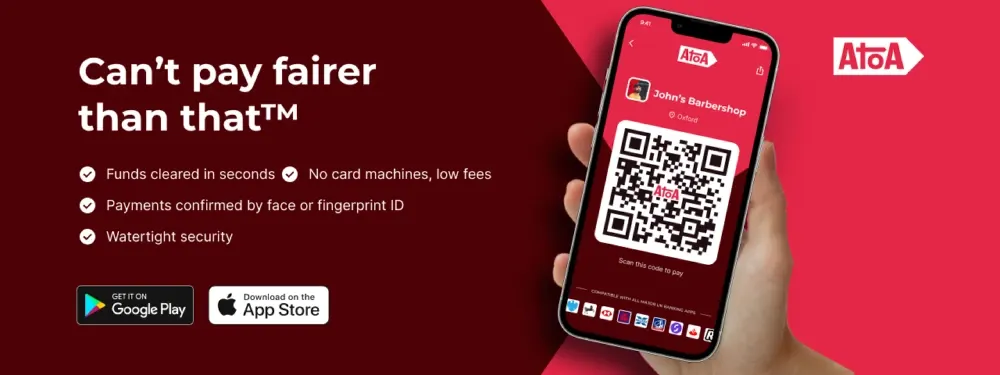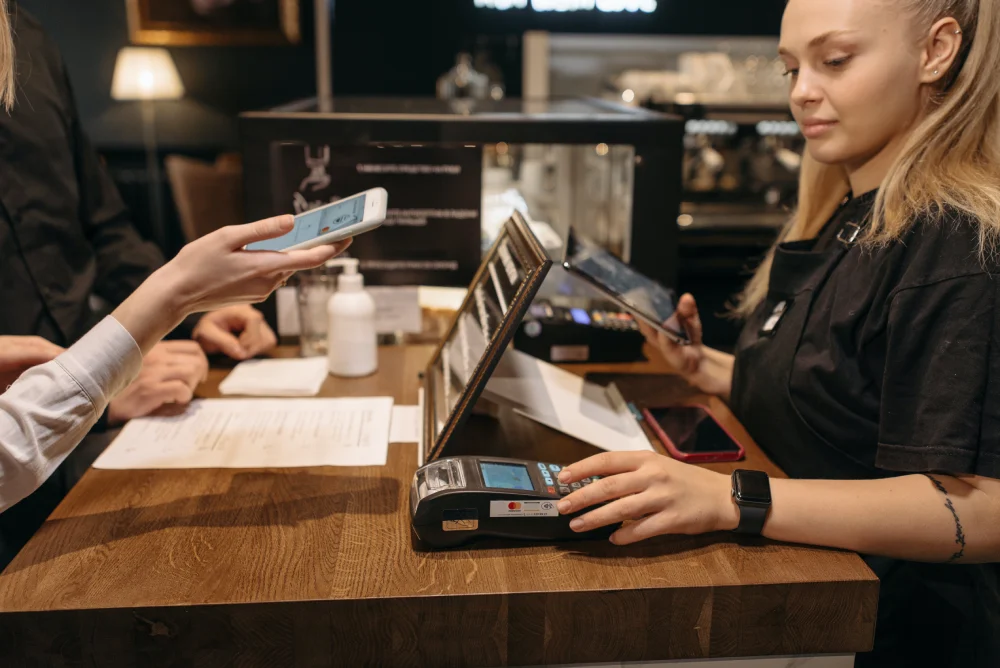Ready to get started?
Easily integrate next-generation payments and financial data into any app. Build powerful products your customers love.
Are you a UK business owner looking to accept free online payments? Accepting online payments is a great way to reach a wider audience and keep customer experiences at an all-time high. You may struggle if you’re wondering where to find online payments with zero charges. Getting them for free might pose problems, but we can definitely help you find cheap and fair payments. Countless payment gateways and solutions are available, so figuring out the best place to start takes time. That’s why we’ve broken down some fast, easy, and effective ways for your business to accept online payments without headaches.
Why businesses need to accept online payments
In just a few decades, online checkout innovations have changed the face of retail. Whilst consumers still crave in-store experiences, online shopping fills the gaps during busy weeks or cold winter nights.
But what makes e-commerce tick? Online payments, of course! Online payments refer to digital transactions customers make to purchase goods or services from businesses. In October 2023, the value of online sales stood at 26.6% of total retail sales in the UK. At just over a quarter of the market, it answers why businesses need to accept online payments, plain and simple. But why are consumers making digital payments?
There are many reasons, from the increasing popularity of smartphones and tablets to the convenience of shopping they offer. Also, e-commerce breaks down geographical barriers with more products and choices, fueling competitive pricing. This trend is expected to continue in the coming years, with online sales expected to account for 33.2% of all retail sales in the UK by 2025.
Digital payments have many advantages
But an open doorway to sales and success isn’t the only reason businesses and customers prefer secure online transactions. Whether you’re looking for slicker operations or a broader customer base, here are a few key benefits for business owners…
Instant convenience and improved efficiency: Online payments mean no more cash handling. You can even reduce your dependence on card payments, too. Arm your checkout with various payment options, from digital wallets to buy now, pay later and other alternative methods.
Boost your business’s bottom line: Online payments fast-track funds, improving cash flow and growth opportunities. Additionally, online payments have lower transaction fees than traditional methods like cards.
Reach customers across the globe, around the clock: Accepting online payments opens doors to a broader customer base. Purchases can be made anywhere and anytime, tapping into higher sales without geographical barriers.
Increased security comes with the territory: Reputable online payment gateways employ robust security measures to protect sensitive customer data and prevent fraudulent transactions. This gives customers confidence and reduces the risk of financial losses for businesses.
Easier accounting and records: Online payments generate detailed transaction records, simplifying accounting and bookkeeping tasks. Businesses can easily track payments, reconcile accounts, and generate bank rules for easy reporting and tax compliance.
A better customer experience in a few taps: Offering convenient and secure online payment offers a better buying experience and encourages return visits. Customers seek minimal clicks, saved payment details, and fair shipping options.
Ways businesses accept online payments
Is anything ever really free? Not usually, but it is possible to get a fair deal. But finding one takes time, whether it’s research providers or poring over the small print. We’ve explored how to create an online payment system for your business before, but here’s a little more insight on how other UK merchants approach this.
The most common way to collect digital funds is through an online payment service provider. Popular options include PayPal, Stripe, and the processors built into platforms like Shopify and WooCommerce. Many website platforms integrate easily with payment service providers. E-commerce businesses should consider third-party providers like Atoa, which can be easily added to WordPress sites with WooCommerce.
Some businesses still use BACS and bank transfers for electronic transactions with low or no charges. However, the customer experience isn’t great, and you can be exposed to errors in sharing bank details. But why use that when you can use an instant bank pay app?
Over a third (35%) of online transactions in the UK were made with a mobile wallet in 2022. Apple Pay is the most popular, with Google Pay following behind. Digital and mobile wallets are more than a trend; we highly recommend adding them to your checkout flow.
And finally, invoicing platforms like QuickBooks and Xero make it easy for clients to pay for your services by using one-click payments or scannable invoices. Wanna your payments automatically? Atoa features auto-integration with accountancy apps to boss tax season.
By accepting online payments, you can improve your business’s reach, making it easier for customers to buy from you. So why not give it a try?
How to accept fair online payments
Accepting payments online is a must for UK businesses to survive and thrive. To achieve this, businesses must build an efficient online payment system. Here’s a step-by-step guide to setting up a smooth digital process for your business:
Choose a payment gateway: You need one to take online payments; it’s as simple as that. It acts as a secure intermediary between your website, your customer’s bank, and the acquiring bank, handling the encryption and processing of payment information. Popular payment gateways in the UK include Stripe, Worldpay, and PayPal. But there are more innovative and affordable bank-to-bank options out there.
Set up a merchant account: This business bank account is designed to process online payments. Connecting your website to the payment gateway and receiving customer funds is required. Apply for a merchant account with the payment gateway you’ve chosen.
Integrate the payment gateway: Integrate the payment gateway’s code into your website or e-commerce platform. This will enable customers to enter their payment information during checkout securely.
Add relevant payment options: Set up the payment options you want, such as major credit and debit cards, digital wallets like Apple Pay and Google Pay, and bank transfers.
Test it out: Thoroughly test the payment process to ensure smooth transactions and seamless customer experience. Use test cards provided by the payment gateway to simulate transactions and verify that payments are processed correctly.
Communicate to build trust: Display the accepted payment methods on your website to show customers their payment options and create trust. Offer solid support with FAQs, contact forms, or live chat.
Stay secure online: Implement robust security measures to protect customer data. Use strong passwords, enable two-factor authentication, and comply with data security regulations like PCI DSS.
Keep tabs on transactions: Regularly monitor payment transactions to identify any issues, such as fraud. Promptly address any issues to maintain customer trust and prevent financial losses.
By following these steps, your business can stride towards a secure online payment process that helps expand its customer base to drive growth.
Online payment methods for UK businesses
Business owners need solid payment systems to grow and stay in sync with today’s digital world. Deciding which payment gateways or processors to use can be a tall order, especially when finding a fairly priced option to match your transaction volume.
| Payment provider | Transaction fee | Monthly fee | Other charges | Suitable for |
|---|---|---|---|---|
| PayPal | Sales under £1,500 a month: 3.4% + 20p per transaction Sales up to £55,000 a month: 1.9% + 20p per transaction | £0 | £0 | It’s much cheaper for high-volume transactions, so small businesses might want to consider other methods |
| Atoa | Maximum of 0.7% per transaction on all methods Fees capped at £10 per payment | £0 | No hardware required Biometric security removes the risk of chargeback fees | Businesses of all sizes, contact Atoa for special rates on high volumes |
| WorldPay (via pay360.com) | 0.75% – 2.75% per transaction, dependent on the payment method | Up to 350 transactions: £19.95 per month Up to 850 transactions: £49.99 per month 850 + transactions: bespoke package required | Authorisation fee on each transaction: 4.5p Chargeback fee: £20.00 PCI DSS service fee: £5.00 Minimum monthly service charge: £15.00 | It is pricey, so maybe online is worthwhile if you’re doing very high volumes with a bespoke package |
| Stripe | 1.5% + 20p for UK cards 2.5% + 20p for EU cards | £0 | £15 disputed payments or chargebacks | Good for smaller businesses, but they do have a list of prohibited business types |
Accept card payments online
You can also accept card payments online. There are some benefits, such as lower rates for debit card payments. It’s worth exploring if you think customers depend on cards, but we’d always recommend using a more innovative method to save on fees.
Here’s a quick step-by-step walkthrough to add card payments to your online checkout.
Choose a payment gateway or processor: Research and compare different providers to find one that offers a free plan or low fees that align with your business needs.
Create an account: Sign up for an account with your chosen payment gateway provider and provide your business information and bank account details. Make sure you check for fair fees and no hidden charges first!
Integrate with your website or platform: Follow the provider’s instructions to integrate their payment gateway or processor with your website, e-commerce platform, or invoicing system.
Start accepting payments: You can accept online debit card payments once the integration is set up.
Let’s save you some money on fees by dodging those card rails. Download the “Atoa Business” app from your device store to get 7 days of completely free in-store payments from us. After that, you’ll be charged a maximum flat rate of 0.7% per transaction, capped at £10.
Come see how Atoa can help you take home more of what you earned…




